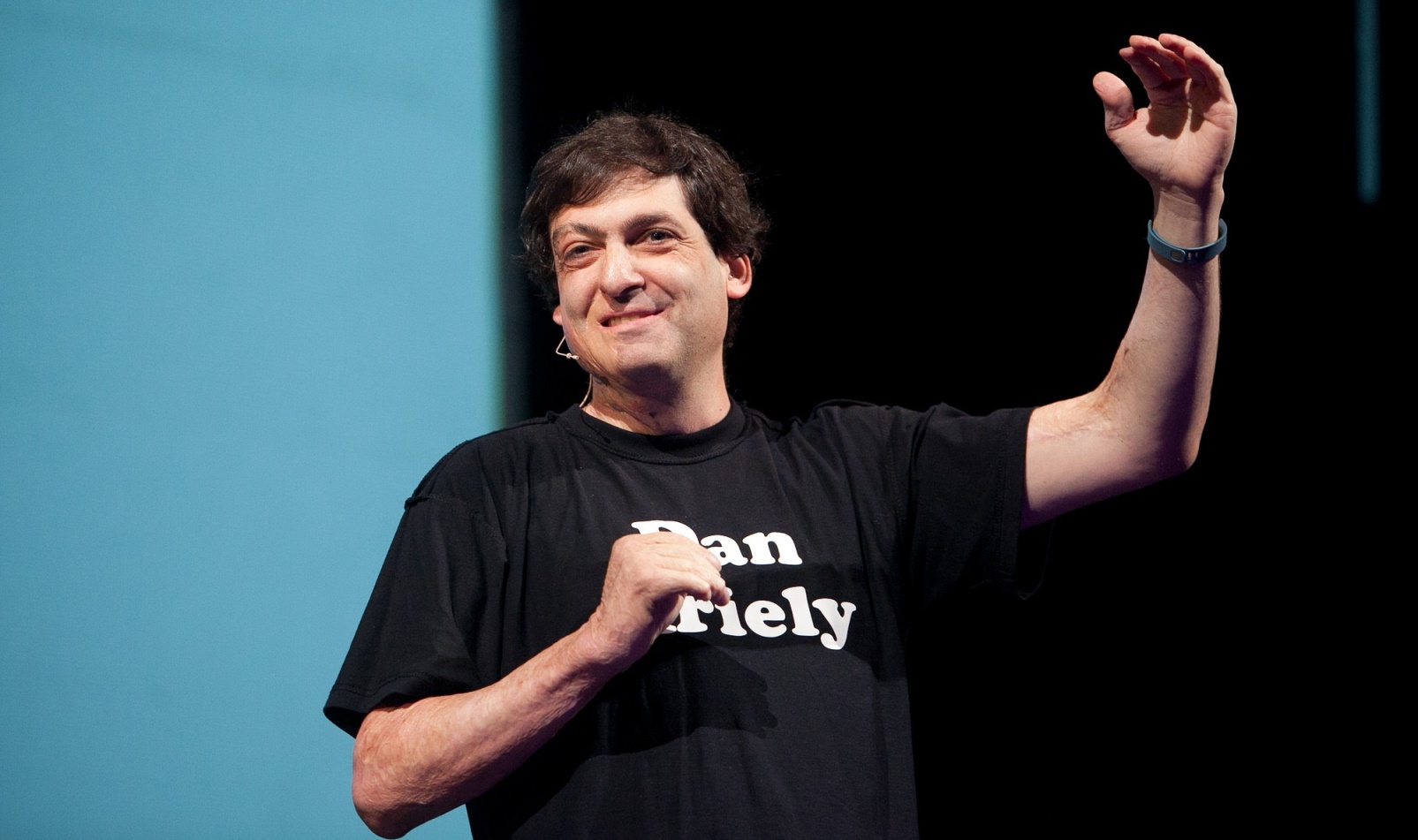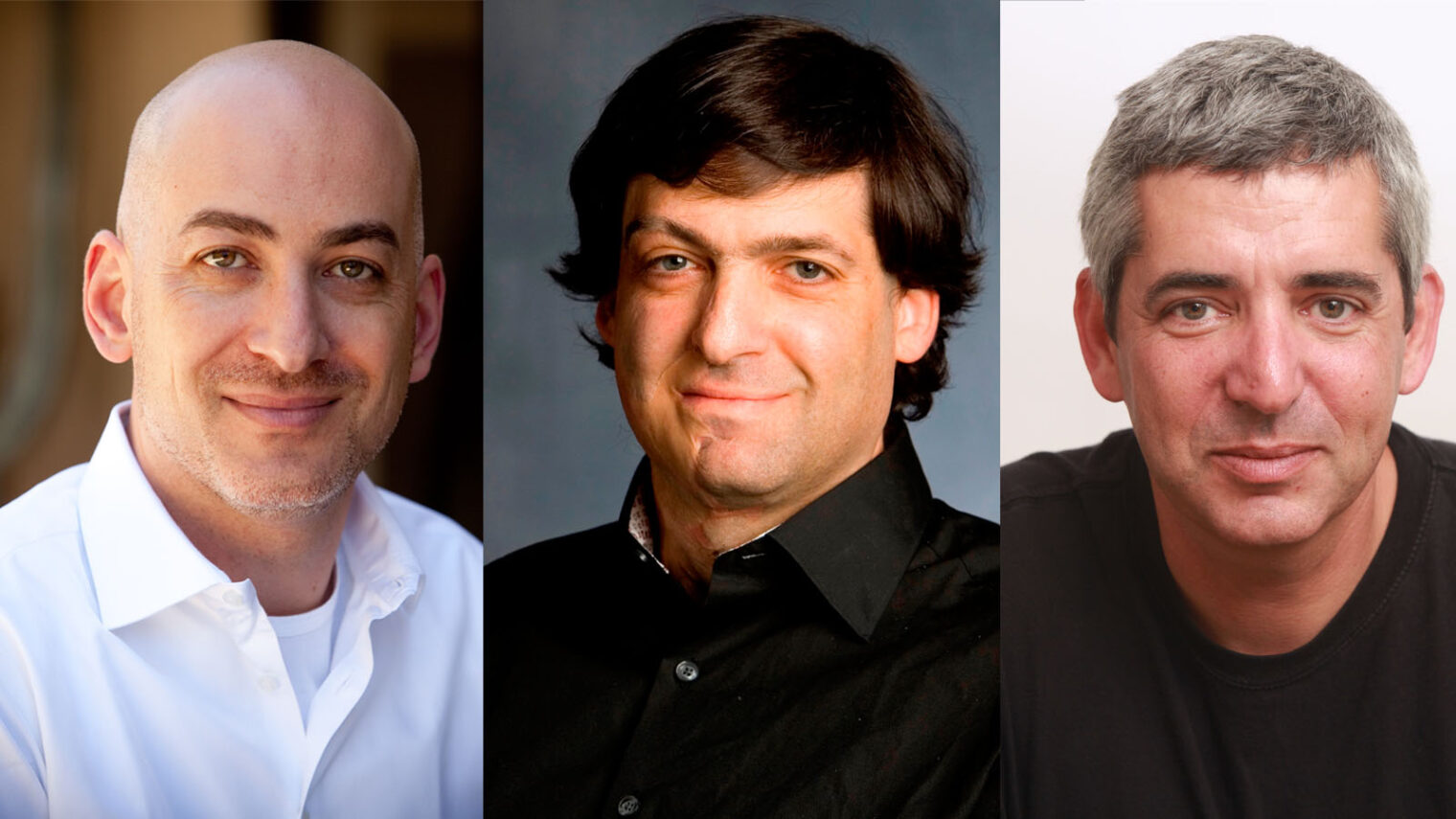If you ever make bad decisions in life – as all humans do – you will be happy to know that experts in the field of behavioral economics can help you almost effortlessly make better choices, in everything from food to money, through subtle tweaks in your environment. If you run a business, their practical suggestions for small changes can boost your bottom line.
Two of the early pioneers of behavioral economics in the 1980s were Israeli professors Amos Tversky and Daniel Kahneman, whose collaborative discoveries led to a 2002 Nobel Prize in Economics.
Today, three of the world’s foremost behavioral economists are Israelis living in the United States. ISRAEL21c asked each of them to share insights into their research and real-life solutions.
Shlomo Benartzi
Shlomo Benartzi has a PhD from Cornell University, co-chairs the Behavioral Decision-Making Group at UCLA Anderson School of Management, and wrote The Smarter Screen: Surprising Ways to Influence and Improve Online Behavior and Thinking Smarter: Seven Steps to Your Fulfilling Retirement and Life.
Benartzi and Richard Thaler of the University of Chicago pioneered Save More Tomorrow (SMarT), a behavioral economics program to help employees increase the amount they put away toward retirement. SMarT is offered by many retirement plans in the United States, United Kingdom and Australia, and was incorporated into the US Pension Protection Act of 2006. Here is his TED Talk on the program:
Benartzi is chief scientist for the California Digital Nudge Initiative, an academic-government-industry partnership using behavioral economics and technology to improve how Californians drive, eat and shop.
For example, to discourage young drivers from texting behind the wheel, the Digital Nudge Initiative will study incentives to increase the use of existing apps that silence text messages and send an auto-reply when the user is driving.

How do you define behavioral economics?
“It’s a bit of economics and a bit of psychology; learning how people make decisions and what economic mistakes they make so we can figure out how to help them make better decisions.”
What is your area of specialty?
“What fascinates me is using behavioral insights to devise solutions that affect a lot of people, like the SMarT program, which invites people to save more money when they make more money. Once they sign up, it’s automatic so they don’t have to remember to do anything. It simply makes it easier for people to do what they really want to do. Two years ago we did a study that concluded we doubled the saving rates of about four million Americans.”
Why are you focusing on digital now?
“People interact with digital devices so much that we have a wonderful opportunity to merge behavioral economics and the digital space to affect a lot of people quickly. My book The Smarter Screen is about ways to create digital environments that help people make the right decisions.
“We found that people seem to behave differently on digital displays. In most digital environments it’s all about making things easy and smooth, and that leads to mistakes and poor decisions.
“For example, when people order food online, they are more likely to order unhealthy food. Nobody’s looking at you or judging you if you order triple bacon on your pizza. On the other hand, most people tend to lie to their doctors about their unhealthy habits like drinking, smoking and unprotected sex, but if we ask them those questions on a screen in the waiting room, we get more honest answers.”
What is digital nudging?
“Nudging is about making the right choice an easy one. There are lots of creative ways for governments to use existing technologies to solve societal problems. Digital nudging could get people to save more money, use less electricity, get tested for breast cancer and vote, for instance. It helps if people have a plan for when, where and how to vote, and we can do that for them digitally. We can tell them where to go and suggest times that are less crowded. I’m very optimistic that we can solve lots of problems with nudging, including the humongous problem of doctors neglecting to wash their hands between hospital patients.”
What places are most likely to embrace digital nudging?
“Israel and California are naturally positioned to lead the pack globally because they have so much technology and creative thinking. We can help them figure out how to use those attributes to solve problems.”
Dan Ariely
Dan Ariely has doctorates from the University of North Carolina and from Duke University in North Carolina. He is a professor of psychology and behavioral economics at Duke and a founding member of the Center for Advanced Hindsight, which researches the psychology of money, decision-making by physicians and patients, cheating and social justice.
He co-founded BEworks, which helps business leaders apply scientific thinking to marketing and operational challenges. Ariely is an adviser to Irrational Labs, a nonprofit that applies behavioral economics findings to product, marketing and organizational design problems; and writes a Q&A column for the Wall Street Journal. He developed the Irrational Card Game and cofounded the Timeful time-management tool bought by Google in 2015.
Ariely’s five TED Talks have been watched over 7.8 million times. He wrote the bestsellers Predictably Irrational: The Hidden Forces That Shape Our Decisions; The Upside of Irrationality: The Unexpected Benefits of Defying Logic at Work and at Home; and The Honest Truth About Dishonesty: How We Lie to Everyone – Especially Ourselves.

How do you define behavioral economics?
“In standard economics, we assume people are infallible. Behavioral economics makes no assumptions but puts people in different situations to see how they behave, and we see they do not always behave rationally and don’t always make the right decisions. This has implications for how we design the world — everything from schools to financial markets.”
What is your area of specialty?
“Human misery, most of which we create ourselves. I’m bothered by the mistakes we make and I study how we can decrease misery. Instead of tempting people to misbehave and fail — overuse credit cards, check smartphones while driving, drink sugary drinks, smoke, overspend — we need to think about how to create environments that help people do better.”
Does honesty differ among cultures?
“We have tested our ability to be dishonest, while thinking of ourselves as honest, in Israel, Italy, China, Germany, Turkey, Portugal, Holland, UK, Canada, US, Colombia, Kenya and South Africa. In general, we find people are the same. We are different in cases where there is a cultural understanding around a particular domain. For example, in some cultures it is considered perfectly fine to download illegal music or bribe a policeman who catches you speeding.
“Israelis also have some cultural differences that override our basic similarities. One of them comes with the word chutzpah, a beautiful term that basically means ‘gumption,’ a sort of lack of respect that leads to questioning the status quo and saying ‘Maybe we should do it in a different way.’ I think this attribute and having it socially reinforced as a good thing is incredibly important for a society that wants to be innovative and wants to break some rules.”
Why have many Israelis become prominent behavioral economists?
“Dani [Kahneman] and Amos [Tversky] started their behavioral economics collaboration in Israel, and had students who later became professors as well. The whole country was buzzing with excitement over decision-making. When I was an undergrad at Tel Aviv University, many of my professors were students of Amos and Dani and I actually thought almost everybody was studying decision-making and behavioral economics. So I think a lot of the interest in Israel around this stems from Dani and Amos’ early collaboration and how effective and wonderful it has been.”
Uri Gneezy
Uri Gneezy has a PhD from the Center for Economic Research at Tilburg University in The Netherlands. He is a professor of behavioral economics and strategy at the University of California-San Diego Rady School of Management and cofounder of a business consultancy for behavioral economics.
Gneezy frequently contributes to the Freakonomics website and coauthored The Why Axis. His specialty is designing simple, clever experiments to demonstrate behaviors such as when and how incentives work, deception, gender differences in competitiveness, the uncertainty effect, and behavioral pricing.
Here’s one concrete example: Last year, an online auto retailer found that offering a $450 cash discount on a used vehicle didn’t increase demand significantly. Gneezy’s consultancy suggested offering the same amount as a pre-paid gas card with a car purchase. This tactic doubled the offer’s success rate. Although $450 doesn’t seem like much relative to the price of a car, it does when used toward gasoline.
What is your area of specialty?
“My interest is based around understanding how people actually behave. In most cases I’m not interested in finding or assuming what people ‘should’ do. Instead, I want to understand how people react to certain changes in the environment, in particular incentives. The ultimate goal is to use this understanding in order to make small changes in the economic environment that can make a big difference in behavior.
“For example, I don’t care if eating a fatty dessert is the ‘right’ or ‘wrong’ thing to do; rather, I care about understanding when and why people choose to do it, and what we can do to change this behavior.”
Does behavioral economics differ among cultures?
“To some degree it does. There are many elements that come with our basic psychology that are similar between cultures. One similarity is that people are more sensitive to losses than to gains. But Israelis, for example, are more sensitive to being a freier (a sucker) and we really suffer more than other cultures when someone tricks us. It is possible that Israelis’ interest in behavioral economics might be related to trying to understand what motivates people in order to avoid being tricked.”
What are some additional ways your research could be applied to motivate people toward better outcomes?
“I’d like people to think about putting behavioral economics to work. For example, we have helped one company save approximately $30 million with a small change to their rewards program, simply by thinking about what the incentives actually do to their customers, and testing a simple alternative change.
“Instead of using traditional approaches, I encourage thinking about the ‘side effects’ of incentives on behavior. That is, when you change the incentives you change the meaning of the interaction, and this change is much broader than the simple one of paying.”

















